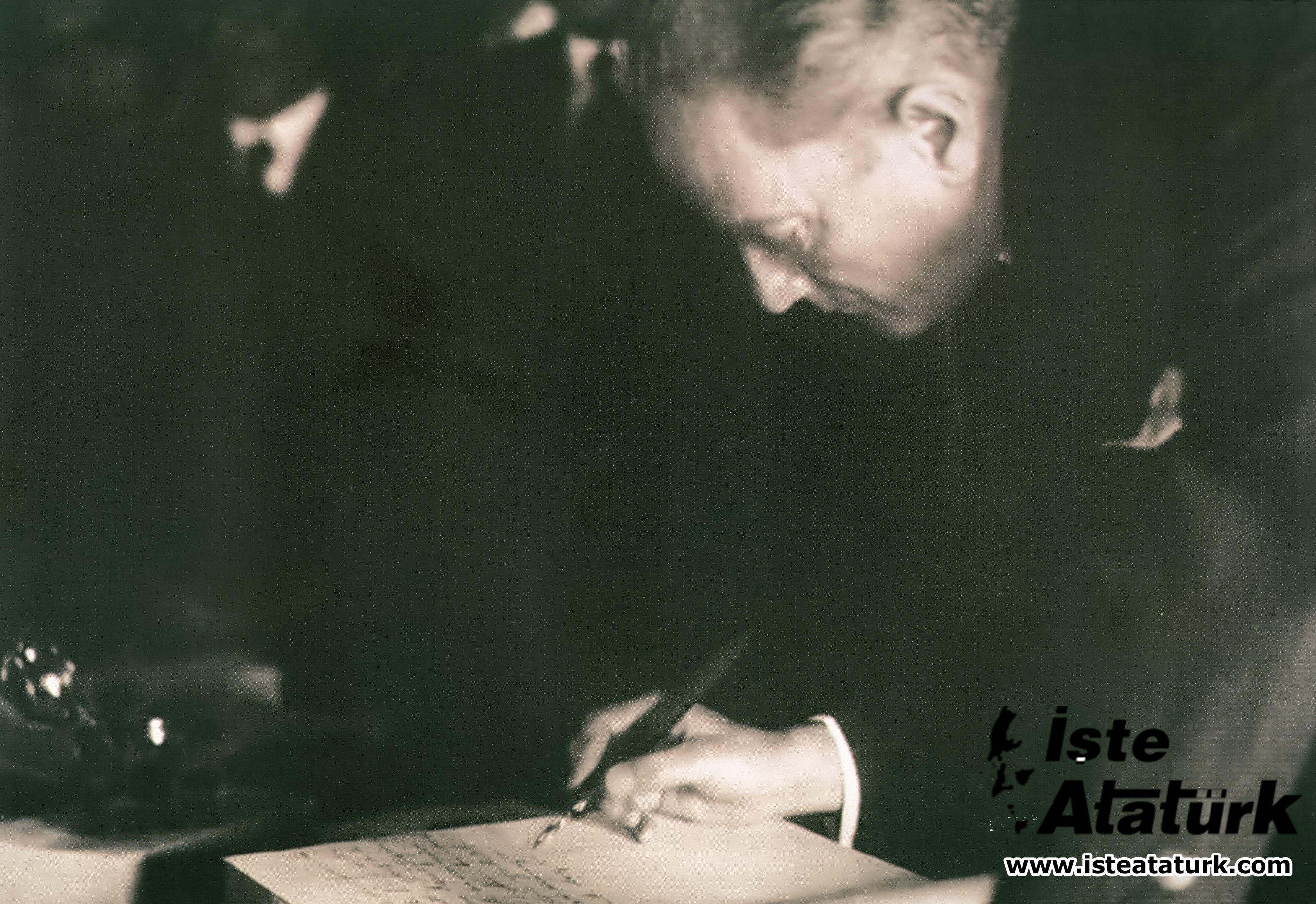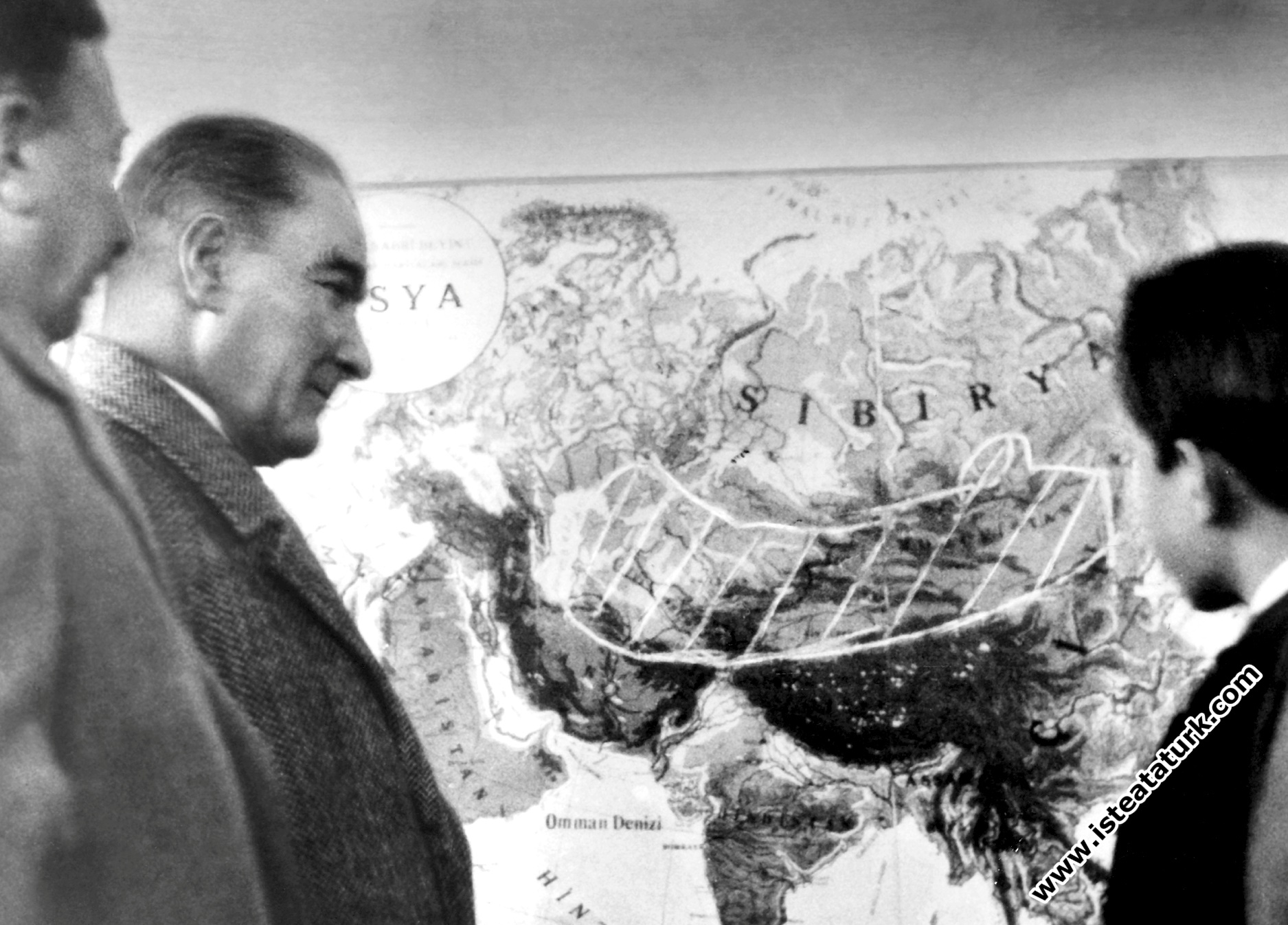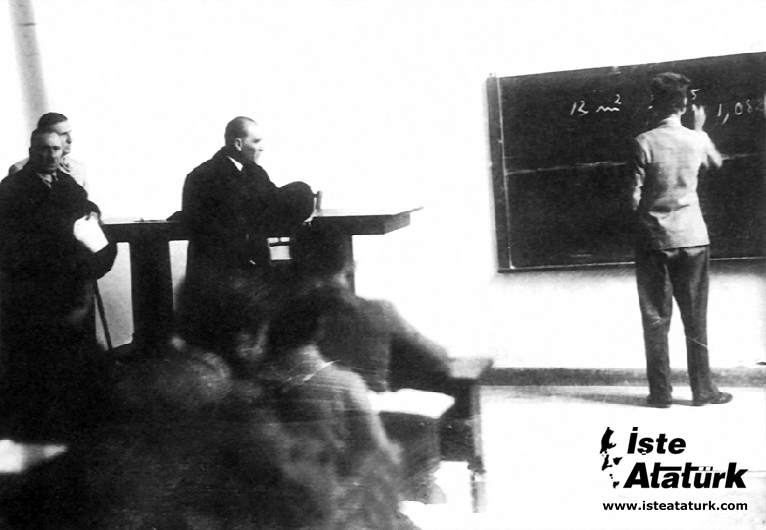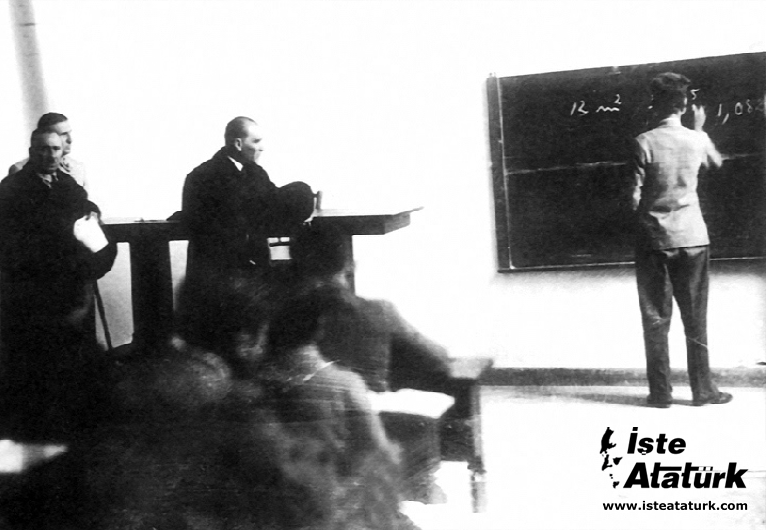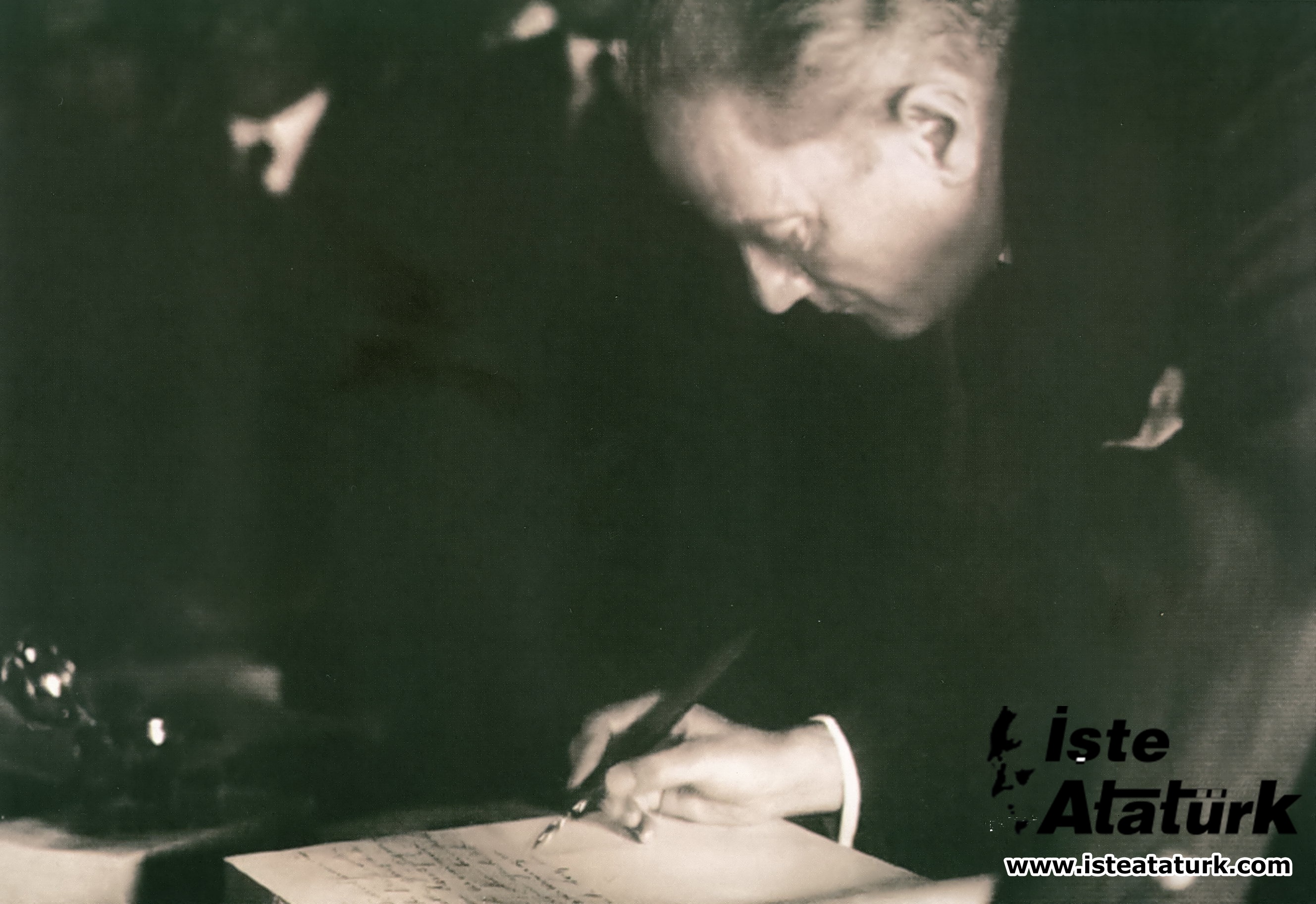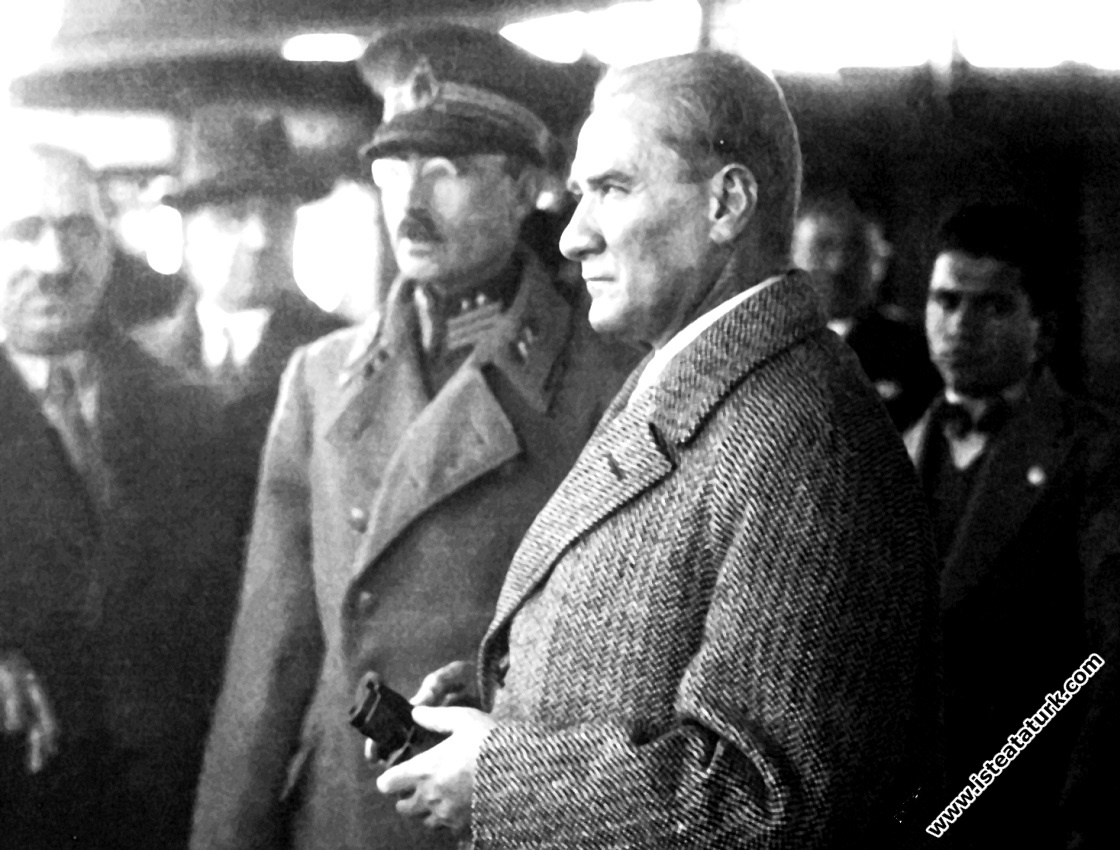
Keeping Atatürk Alive
Character Size
“Seeing me is not necessarily seeing my face. If you understand and feel my ideas and my feelings, that is enough.” Mustafa Kemal Atatürk
Mustafa Kemal Atatürk died on November 10, 1938, at 5 past 9 am, in Dolmabahçe Palace in Istanbul. We do not know on what day in 1881 he was born in Thessaloniki. His life, which was limited between 1881-1938, on the one hand reflects the needs and wishes of our society after the Tanzimat, on the other hand, continues with its clear lines in the formation of the Republic of Turkey, of which he was the founder. In this sense, it can be said that Atatürk's life, in terms of history and society, existed before and after the limitation of 1881-1938. In 1924, "The movement that the Turks have followed for centuries has maintained a constant direction. We are of the opinion that when he says "we always walked from the East to the West", he expresses our society as well as himself with the word "we". A realistic ' Gazi Mustafa Kemal, who is a 'human being', explained in his statement in the Hakimiyet-i Milliye on May 19, 1926 that the rule of human mortality and the continuity of society is also valid for him, with these words: "My humble body will surely become soil one day. However, the Republic of Turkey will stand forever, and the Turkish nation will continue to walk on the path of civilization with the eternal principles of security and happiness without hesitation.” On the other hand, he believes that similar conditions will create similar results by connecting the birth of the "great man" to determinism. When the subject is handled from this point of view, there is not "one" but "two" Mustafa Kemals, and Atatürk saw this sociological fact in 1921 and expressed it: "There are two Mustafa Kemals. One is me, mortal Mustafa Kemal, Mustafa Kemal, whom the other nation has always lived in. I represent it. If I appeared in any danger, didn't a Turkish mother give birth to me? Will Turkish mothers not give birth to Mustafa Kemals yet? The blessing belongs to the nation, not mine." It is undoubtedly "mortal Mustafa Kemal" who died in 1938, was buried in Anıtkabir years later and slept his last sleep on this meaningful hill of Ankara. As the creative pillars of our society, "Turkish mothers" and "fayzi of the nation" will continue to exist today and tomorrow, as they did yesterday, and will continue to respond to the needs of the society. will they not give birth? The blessing belongs to the nation, not mine." It is undoubtedly "mortal Mustafa Kemal" who died in 1938, was buried in Anıtkabir years later and slept his last sleep on this meaningful hill of Ankara. As the creative pillars of our society, "Turkish mothers" and "fayzi of the nation" will continue to exist today and tomorrow, as they did yesterday, and will continue to respond to the needs of the society. will they not give birth? The blessing belongs to the nation, not mine." It is undoubtedly "mortal Mustafa Kemal" who died in 1938, was buried in Anıtkabir years later and slept his last sleep on this meaningful hill of Ankara. As the creative pillars of our society, "Turkish mothers" and "fayzi of the nation" will continue to exist today and tomorrow, as they did yesterday, and will continue to respond to the needs of the society.
We should also remember the two thoughts of Mustafa Kemal Atatürk that brought light to our subject, the first of which was announced to the public in 1922 and the second in 1929: "There is no law that I am an exception." And the second: "To see me is not just to see my face. If you understand and feel my ideas and my feelings, that's enough.'' If these two ideas are considered together with the previous ones, a distinction requirement on ''Keeping Atatürk Alive'' will become clear. In our opinion, it is not possible to untie a knot without making this distinction and to be respectful enough towards the subject. As "Mustafa born from Zübeyde" and "Mustafa Kemal Atatürk born from the heart of the Turkish nation" are confused with each other, Atatürk is considered "useful". It is also possible to be 'harmful' instead of being 'harmful'. While we hug Atatürk when our society comes out of every crisis period, we should also take into account the needs of the "mortal" and the "living in thought and action", the situations and developments in the flow of time.
When we approach our subject with this understanding, we need to focus on the following points:
1) As in the ceremony held in the Grand National Assembly of Turkey on April 23, 1970, shouting "Mustafa Kemal Pasha" during the roll call and answering "here!" To greet and bid farewell to his bust is nothing but raising an eye when you want to make an eyebrow. It should not be forgotten that those who had the happiness of knowing Atatürk closely found an easy way to love Atatürk by incorporating the effects of his gestures and physical appearance into their own lives. For younger generations, Atatürk is a matter of emulation based on action and thought characteristics, not on eyebrows, hair and eye elements.
2) The right way to keep Atatürk alive can be found by protecting and improving his ''work''. Thus, the problem of "understanding and completing Atatürk" emerges: "One side of understanding Atatürk is his independence fighter, the other side is the integrity of the revolutions he made... It is to close the gaps opened in the understanding of ''and the Integrity of the Turkish Revolution''... It is not enough to restore Kemalism to its former level; It is also necessary to complete the missing parts. The real meaning of completing Atatürk is to make new contributions to the Turkish Revolution... Revolutionism, one of the principles of the Turkish Revolution, necessitates an understanding that is open to new occurrences instead of a hardened social order.
3) The scribbles and attacks, the last and ugly example of which we see in Doctor Rıza Nur's book titled "Life and Remembrance" (Istanbul 1967-1968, four volumes), "Leave aside harming Atatürk, it is a crime that has been unfairly established in some minds. it will be useful for the liquidation of a "mythe" (Rıza Nur)... It is normal for the chapters of history about great men to resemble a slipper. In the close circle of every great man, especially in times of crisis, there are those who cannot even be his shoes. The period of Mustafa Kemal Atatürk in the history of Turkey is also included in this rule.
4) There is no need for artificial buttresses to keep Atatürk alive. Atatürk has shown so far that he has the power to live in his own integrity, despite all his efforts to corrupt and divide. Putting it in narrow molds on the grounds of "determining Atatürk's principles", closing it for interpretation and discussion, would be reducing Atatürk to the "evliya" rank, which he did not like at all. Creating an "Ataturk taboo" is neither necessary nor possible in Republican Turkey.
5) The last point we would like to mention is the need to reorganize the practice that we can call "November 10 Kemalism". If his basic views are reduced to a single principle from an individual point of view, it can be argued that this is to make the mind sovereign and free. The duty of the generations who are connected to Atatürk with love and respect is to present a useful way of commemorating Atatürk with a rational attitude. To continue the tradition and to find it objectionable to open a discussion on this issue would be to go against the essence of Kemalist thought first.
As it is seen, instead of the "revivals" of mortal Atatürk, which are created by a tradition of remembering and commemoration based on intersections in space and time, the only way to keep Atatürk alive is the restorations and contributions that go to the core of Atatürkist thought and action. . What he said in his "opening" speech at the Turkish Grand National Assembly a year before his death is also a "purpose" for 1971 Turkey:
"Our great cause is to increase our existence as the most civilized and most prosperous nation. This is the dynamic ideal of the great Turkish nation, which has made a fundamental revolution not only in its institutions but also in its thoughts. We have to carry out ideas and actions together in order to achieve this ideal as soon as possible. it can only be possible by working with a comprehensive plan and in the most rational way." Unless the "dynamic ideal" mentioned by Atatürk is turned into a compass showing the development direction of our society, "Keeping Atatürk Alive" with ostentatious ceremonies and brilliant speeches cannot go beyond a consolation.
Source: Understanding and Complementing Atatürk, Prof.Dr. It was prepared by a committee under the chairmanship of Cavit Orhan Tütengil and Nurer Uğurlu. Typesetting, Printing, Publisher: Yenigün News Agency, Press and Publishing Inc. November 1998
